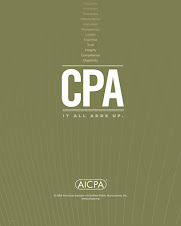Q: I hear people saying that they are getting a credit that helps them reduce their tax bill. Where do I go to get these credits?
A: Actually you
don't need to go somewhere to get the credit.
You get the credit by filling out your tax return. The problem is that you have to quaify (meet
certain facts and circumstances) to qualify for the credit.
A tax credit is a dollar-for-dollar reduction of taxes
owed. Some tax credits are refundable meaning if you are eligible and claim
one, you can get the rest of it in the form of a tax refund even after your tax
liability has been reduced to zero.
Here are the four most common refundable tax credits you
should consider to increase your refund on your 2011 federal income tax return:
1. The Earned Income Tax Credit is for people earning
less than $49,078 from wages or self-employment. Income, age and the number of
qualifying children determine the amount of the credit, which can be up to
$5,751. Workers without children also may qualify. For more information, see
IRS Publication 596, Earned Income Credit.
2. The Child and Dependent Care Credit is for expenses
paid for the care of your qualifying children under age 13, or for a disabled
spouse or dependent, while you work or look for work. For more information, see
IRS Publication 503, Child and Dependent Care Expenses.
3. The Child Tax Credit is for people who have a
qualifying child. The maximum credit is $1,000 for each qualifying child but,
if your earned income is too high, the credit is phased out. You can claim this
credit in addition to the Child and Dependent Care Credit. For more information
on the Child Tax Credit, see IRS Publication 972, Child Tax Credit.
4. The Retirement Savings Contributions Credit, also
known as the Saver’s Credit, is designed to help low-to-moderate income workers
save for retirement. You may qualify if your income is below a certain limit
and you contribute to an IRA or workplace retirement plan, such as a 401(k)
plan. The Saver’s Credit is available in addition to any other tax savings that
apply. For more information, see IRS Publication 590, Individual Retirement
Arrangements (IRAs).
There are many other tax credits that may be available to
you depending on your facts and circumstances such as education credits. Unfortunately this is one of the reasons the tax system is so
complicated. For more information check
out www.IRS.gov
I hope that this helps.



No comments:
Post a Comment